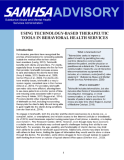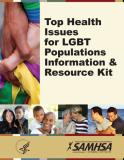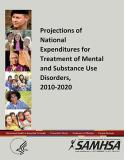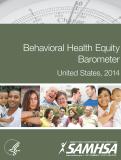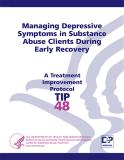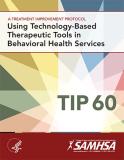
This manual assists clinicians with implementing technology-assisted care. It highlights the importance of using technology-based assessments and interventions in behavioral health treatment services. The manual also discusses how technology reduces barriers to accessing care.
Units per Product
Download
TIP 60: Using Technology-Based Tools in BH Svcs
File Type: PDF
File Size: 2.73 MB
Part 3: A Review of the Literature
File Type: PDF
File Size: 2.1 MB


